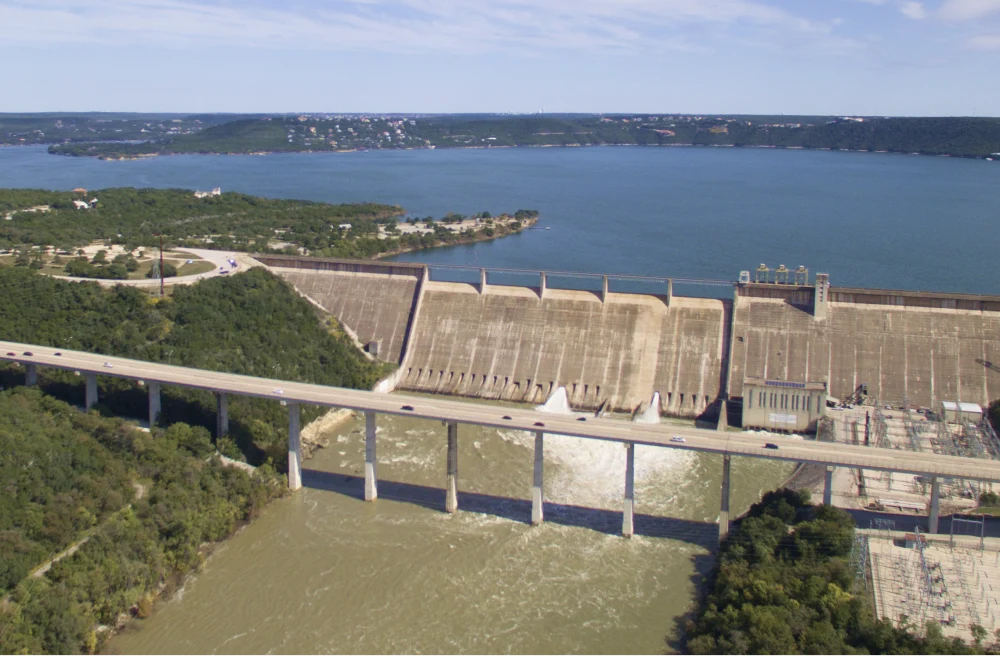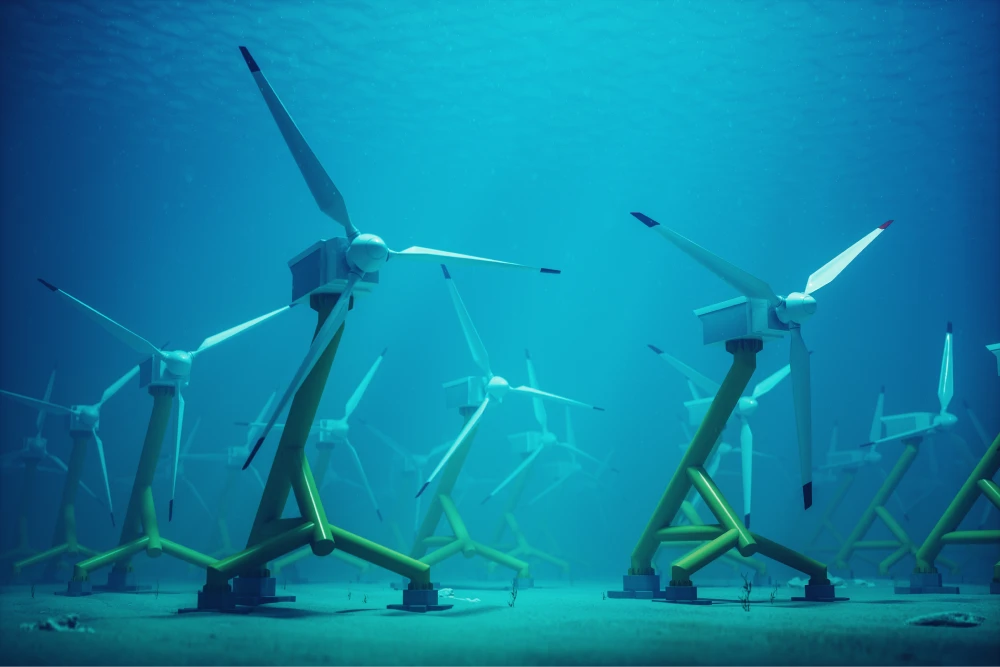Pros and Cons of Tidal Energy
5 minute readTidal energy is an emerging form of renewable power that harnesses the kinetic and potential energy of ocean tides to
Home > Learning Center > Energy Production > Hydroelectric Dams in Texas
2 minute read • Last update October 2024

According to the Texas Comptroller, there are currently 26 hydroelectric dams in the state of Texas.
There are many more non-power dams across the state, but only a few locations meet the requirements to host a dam.
| Dam Name | Owner | Location | Capacity (MWh) |
|---|---|---|---|
| Mansfield Dam | Lower Colorado River Authority | Austin, Texas | 108 |
| Denison | UCSE-Tulsa District | Lake Texoma | 104.3 |
| Toledo Bend | Entergy Texas | Sabine River (Texas – Louisiana border) | 81 |
| Amistad Dam & Power | International Boundary and Water Commission | Amistad Reservoir (Texas – Mexico border) | 66 |
| Buchanan Dam | Lower Colorado River Authority | Between Llano and Burnet, Texas | 54.9 |
| Wirtz Dam | Lower Colorado River Authority | Lake Lyndon B. Johnson | 54 |
| Sam Rayburn | USCE-Fort Worth District | North of Jasper, Texas | 52 |
| Whitney | USCE-Fort Worth District | Lake Whitney (Southeast of Hillsboro, Texas) | 41.8 |
| Starcke Dam | Lower Colorado River Authority | Marble Falls, Texas | 39.6 |
| Falcon Dam & Power | International Boundary and Water Commission | South of Laredo, Texas | 31.5 |
| Lake Livingston | East Texas Electric Cooperative | Livingston, Texas | 26.7 |
| Tom Miller Dam | Lower Colorado River Authority | Austin, Texas | 18 |
| Inks Dam | Lower Colorado River Authority | Inks Lake State Park | 15 |
| Eagle Pass Hydro | Maverick City Water Control and Improvement | Eagle Pass, Texas (Texas – Mexico border) | 9.6 |
| Robert D. Willis | USCE-Fort Worth District | Southwest of Jasper, Texas | 8 |
| Canyon | Guadelupe-Blanco River Authority | Canyon Lake | 6 |
| Dunlap TP 1 | Guadelupe-Blanco River Authority | Seguin, Texas | 3.6 |
| Lewisville Lake Dam | City of Garland | Lewisville, Texas | 2.8 |
| Abbot TP 3 | Guadelupe-Blanco River Authority | McQueeny, Texas | 2.8 |
| H5 | Guadelupe-Blanco River Authority | East of San Antonio | 2.4 |
| H4 | Guadelupe-Blanco River Authority | East of San Antonio | 2.4 |
| Nolte | Guadelupe-Blanco River Authority | Seguin, Texas | 2.4 |
| TP4 | Guadalupe-Blanco River Authority | Seguin, Texas | 2.4 |
| Arlington Outlet Hydroelectric Generator | Tarrant Regional Water District | Southeast of Fort Worth, Texas | 1.3 |
| Gonzales Hydro Plant | City of Gonzales | Gonazles, Texas | 0.9 |
| Saffold Dam | City of Seguin | Seguin, Texas | 0.25 |
Together they have a maximum capacity of 481 megawatts (MW). This is less than 0.5% of the Texas’ total generating capacity. The grid in Texas relies more heavily on renewable resources like wind and solar, as they are much more abundant in the state.
Drought in Texas can have a significant impact on the state’s hydropower generation capacity due to reduced availability of water in key rivers and reservoirs that feed the plants stationed at those locations.
Photo attribution: MisterKenobi, CC BY-SA 4.0 https://creativecommons.org/licenses/by-sa/4.0, via Wikimedia Commons
Graham Lumley, Digital Marketing Manager at BKV Energy, leads digital and traditional marketing strategies, focusing on educating Texans about the state's deregulated energy market. With over 8 years of marketing experience, he creates content to help consumers understand and save on their energy bills, bringing a fresh and dynamic approach to the industry.

Tidal energy is an emerging form of renewable power that harnesses the kinetic and potential energy of ocean tides to

Hydropower offers clean electricity but also alters ecosystems, water quality, and greenhouse gas levels.
Get $50 off your electric bill!
Use code BKVEJOINUS50
Enter your zip code to shop BKV Energy's affordable, fixed-rate Texas electricity plans. Use the promo code for $50 off your electric bill.